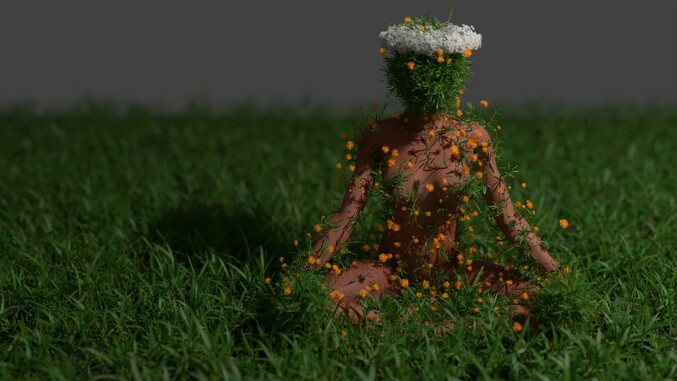|
Antoinette Blackwell was both an Evolutionist and a Creationist! She was the first woman ordained as a Christian minister in the US, and she wrote a General Science textbook agreeing with Charles Darwin's theory of the evolution of species by natural selection. What an interesting historical character in light of today's debates between Creationists and Evolutionists! Mother Blackwell was also a suffragette. In 1920, at age 95, she was the only participant of the 1850 Women's Rights Convention in Worcester, Massachusetts who lived long enough to vote when at last women had the vote, dammit. Reverend Blackwell was also an abolitionist against slavery. She was one of the few white feminists to support the 15th Amendment giving the vote to Black men, even as no women had the vote. She supported the famous African American leader, Frederick Douglass, in this debate within American feminism in the mid-1900's. A regular Force of Nature was she. I came across Blackwell in reading about Charles Darwin's book The Descent of Man, and Selection in Relation to Sex. Antoinette Blackwell wrote The Sexes Throughout Nature. I haven't actually read those books yet, but I have them on order. Future articles will explore the issues in those books more. Meanwhile, Wikipedia's items explain how Blackwell argued that there was natural selection for "cooperation and balance" among humans, all of us members of the same species. Survival of the fittest does not mean survival of competition between humans, survival of the toughest individual "men". The fittest are those who successfully reproduce! Reproduction requires , in the first place, cooperation (smiles). (For more on cooperation see Charles’ last article “Is Human Nature Social or Selfish?”) Antoinette Blackwell's book, The Sexes Throughout Nature, critiques Charles Darwin four years after he published The Descent of Man, and Selection in Relation to Sex in 1871, and Herbert Spencer, whom the author thought were the most influential men of her day. Darwin had written a letter to her in 1869, thanking her for a copy of her book, Studies in General Science. She also answers Dr. E. H. Clarke and his book Sex and Education which she deplored. Blackwell's book was republished by Hyperion Press in 1976, 1985 and 1992. Parts of the book were first published in Woman's Journal and Popular Science Monthly. Blackwell chose to highlight balance and cooperation rather than struggle and savage rivalry. She criticized Darwin for basing his theory of evolution on "time-honored assumption that the male is the normal type of his species". She wrote that Spencer scientifically subtracts from the female and Darwin as scientifically adds to the male. Darwin's theories of evolution by natural selection were used to show women's place in society was the result of nature. One of the first women to critique Darwin, Antoinette Brown Blackwell published The Sexes Throughout Nature in 1875. She was aware she would be considered presumptuous for criticizing evolutionary theory but wrote that "disadvantages under which we [women] are placed...will never be lessened by waiting". Blackwell's book answered Darwin and Herbert Spencer, who she thought were the two most influential living men. She wrote of "defrauded womanhood" and her fears that "the human race, forever retarding its own advancement...could not recognize and promote a genuine, broad, and healthful equilibrium of the sexes". Furthermore, in Darwin's theory of natural selection concerning living beings, the "struggle" in the struggle for existence, to live, is not between Individual Selves of the same species to the point of Individual Bodies, somebodies, of the same species killing each other except very rarely. Most of the deaths before passing on genes to the next generation, are due to failures in struggles with some Individual Body of another species., plant and animal, as predator and prey; or struggle against bad weather, heat exhaustion, sunburn It is easy to see how some people get a misconception of Darwinian natural selection because it is posed in most of it prime formulations with a sort of emphasis on the fact of indirect "competition" in the sense that for the typical bodily form of a species to change under Darwin's theory, some members with genes that change species typical traits must more successfully pass them on than members with species typical traits over successive generations until the new trait is universal and the old typical trait is extinct. But this does not necessarily or even conventionally imply direct physical conflict between Individuals of the two types but the same species in the day-to-day struggle for existence to survive as Individual Bodies. This is demonstrated by the famous anthropological micro-evolutionary study of sickle cell genes on pages 44 to 46 of The Essence of Anthropology. There is no direct physical competition between the people of the various genotypes with different fitnesses in the different environments in the study. It is not an Individual , but a species, a group of the same type who "evolve", "adapt" or "survive". Individuals must live their individual life long enough to reproduce for the species to survive. However, every individual eventually dies. "Survival" of the individual means living long enough to pass on genes or a geno-type to the future generations. If mutated genes, changed geno-type, are passed on, there is a potential unit of evolution between the parent and the offspring. That is evolution occurs between Individuals of different generations, not in one Individual Self. If the mutated genotype results in a phenol-typical trait that is adaptive in some significant way, it may become an evolutionary change by the species through several. Male supremacy, greed and war are not in our genes. The male supremacist family, private property (classes; greed), and the state ( special repressive apparatus ) arises as a complex together circa 6,000 years ago in Mesopotamia. They are still together in a complex that dominates the human species in 2018. Before that for the about 2.5 million years of the Stone Age ( true Civilization) there was gender equivalence, sharing and peace in the species; that's when we were substantially "hardwired " genetically . So, Male supremacy and class divided society and war are not in our genes. It was not until one century later that feminists were working from inside the natural sciences, and could address Darwin's androcentricity. Sarah Blaffer Hrdy wrote in her book Mother Nature: A History of Mothers, Infants and Natural Selection (quoting from an excerpt of pages 12–25 in Anthro Notes for educators published by the National Museum of Natural History), "For a handful of nineteenth-century women intellectuals, however, evolutionary theory was just too important to ignore. Instead of turning away, they stepped forward to tap Darwin and Spencer on the shoulder to express their support for this revolutionary view of human nature, and also to politely remind them that they had left out half the species." Hrdy added, "Evolutionary biology did eventually respond to these criticisms, yet in their lifetimes, the effect that these early Darwinian feminists—Eliot, Blackwell, Royer, and a few others—had on mainstream evolutionary theory can be summed up with one phrase: the road not taken." In the Descent of Man, Darwin wrote that by choosing tools and weapons over the years, "man has ultimately become superior to woman" but Blackwell's argument for women's equality went largely ignored until the 1970s when feminist scientists and historians began to explore Darwin. As recently as 2004, Griet Vandermassen, aligned with other Darwinian feminists of the 1990s and early 2000s (decade), wrote that a unifying theory of human nature should include sexual selection. But then the "opposite ongoing integration" was promoted by another faction as an alternative in 2007. Nonetheless, Darwin's explanation of sexual selection continues to receive support from both social and biological scientists as "the best explanation to date". Perhaps Antoinette Blackwell's ideas are a basis for cooperation between Creationists and Evolutionists today! AuthorCharles Brown is a political activist in Detroit, Michigan. He has degrees in anthropology and is a member of the bar. He teaches anthropology at Community College. His favorite slogan is "What’s good for the goose is good for the gander.” Archives November 2021
0 Comments
Leave a Reply. |
Details
Archives
July 2024
Categories
All
|


 RSS Feed
RSS Feed